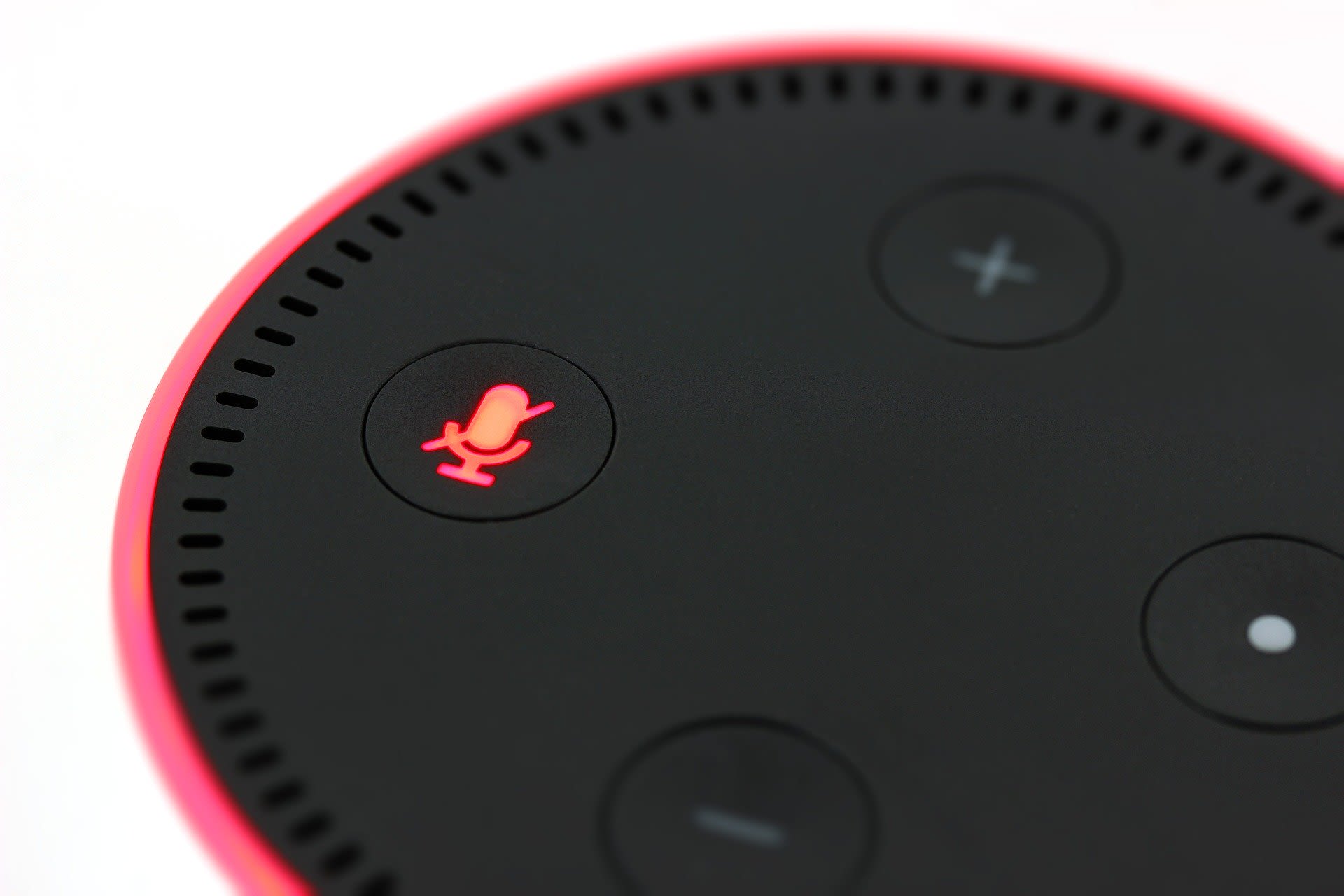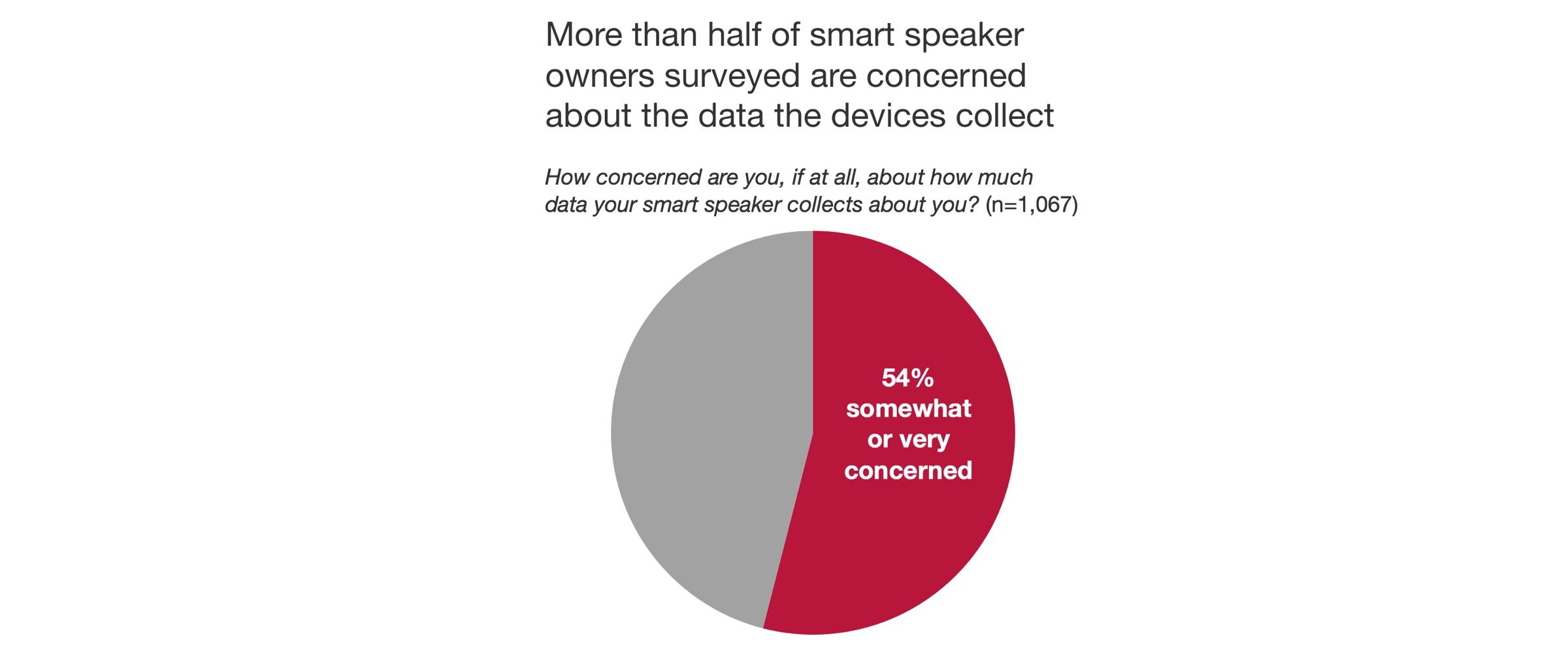Smart speakers & privacy choices
Are companies offering clear information & usable controls?


Data from NPR Smart Audio Report, Winter 2019
Data from NPR Smart Audio Report, Winter 2019

Data from Google Trends, January 2017 to December 2019, keywords "Alexa Privacy." Note: Google Trends scores are normalized scores based on search interest. 100 is the maximum possible score, indicating high relative interest in a set of search terms. The data used here is drawn from searches in the United States.
Data from Google Trends, January 2017 to December 2019, keywords "Alexa Privacy." Note: Google Trends scores are normalized scores based on search interest. 100 is the maximum possible score, indicating high relative interest in a set of search terms. The data used here is drawn from searches in the United States.

Data collected from my own interactions with Amazon Echo Dot and Google Home Mini devices, February 2020. Apple not included here because I didn't have access to a HomePod, and Siri on a phone or other device with a screen isn't comparable in this context
Data collected from my own interactions with Amazon Echo Dot and Google Home Mini devices, February 2020. Apple not included here because I didn't have access to a HomePod, and Siri on a phone or other device with a screen isn't comparable in this context

Data collected from the setting relevant to turning off recording history / preventing recording history from being saved and used by the company in each of the following apps: Siri portion of Apple Settings in iOS, Google Assistant iOS app, and Amazon Alexa iOS apps. Readability scores for the language explaining those settings were calculated via https://www.webfx.com/tools/read-able/
Data collected from the setting relevant to turning off recording history / preventing recording history from being saved and used by the company in each of the following apps: Siri portion of Apple Settings in iOS, Google Assistant iOS app, and Amazon Alexa iOS apps. Readability scores for the language explaining those settings were calculated via https://www.webfx.com/tools/read-able/
CALLS TO ACTION
- Do your research when buying and deciding how to use these devices. Maybe even read privacy policies 😫 (I know, it's miserable—that's why we want to push companies to be better)
- Don't assume the device is making the right choices for you by default: find and consider changing your privacy settings!
- User studies are needed to understand how users prefer to receive privacy information (voice or screen) and whether they can understand current privacy interfaces.
- We will likely need to design and test voice-based privacy interfaces that let people get information and make informed choices.
- Once we have a better understanding of this space, we may need to argue for regulations (similar to the opt-out guidelines in CCPA for websites) to tell companies how to offer privacy information on voice assistants.


